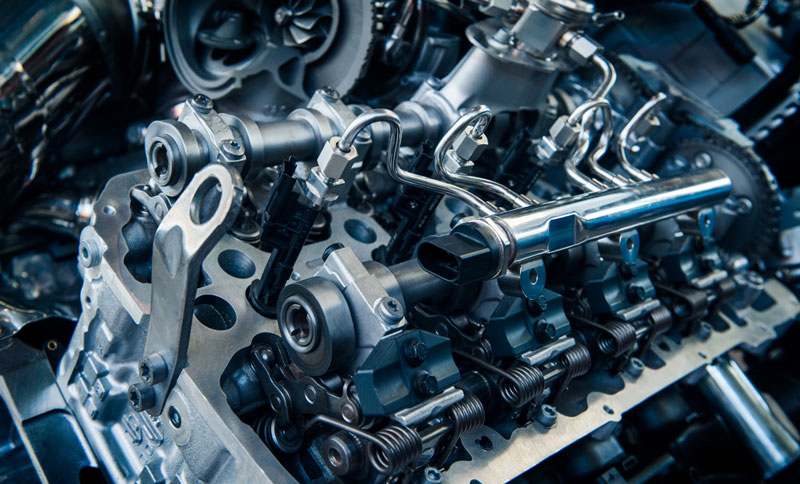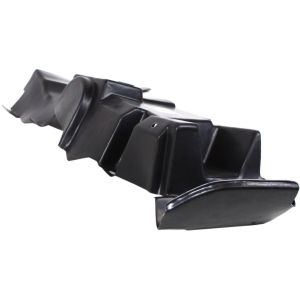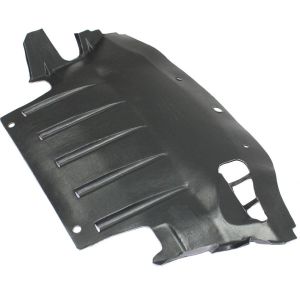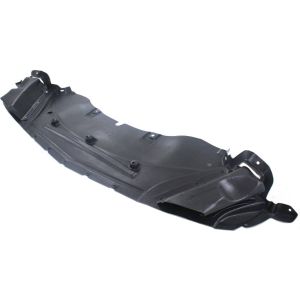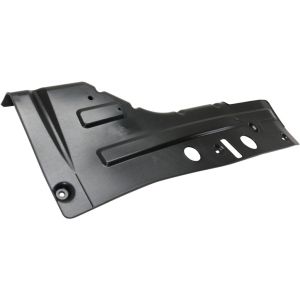Have you ever wondered if that unsettling shake in your car's engine is a sign of something serious? It's a common question, often followed by a wave of concern. Could it be a minor issue like a worn-out spark plug, or something more alarming like an engine misfire? Perhaps it's a faulty fuel injector you're dealing with.
There's a myriad of possibilities and the truth might not be as daunting as you think. Let's navigate this bumpy road together, unfolding the mystery that keeps your car - and your heart - rumbling.
Key Takeaways:
- The potential causes of a shaking car engine include worn spark plugs, faulty ignition system, engine misfires, and fuel system issues.
- Ignoring engine shaking can lead to reduced fuel efficiency, engine damage, increased emissions, and potential safety hazards.
- Addressing engine shaking involves checking spark plugs, inspecting fuel system, diagnosing misfires, searching for vacuum leaks, and testing the ignition system.
- Regular vehicle maintenance is crucial for preventing engine shaking, extending engine lifespan, ensuring optimal performance, and enhancing safety.
What Does It Mean When My Car Engine Shakes?
When you notice your car engine shaking, it often signals issues such as worn-out spark plugs, faulty ignition coils, engine misfires, or suspension problems. It's like your car's way of crying out for help, a warning sign that something's not right.
Now, you're probably wondering, "What does it mean when my car engine shakes?" Well, the answer can be varied. Engine shaking could mean your spark plugs need replacing. If they're worn out, they can't ignite the fuel-air mixture in your engine properly, causing your car to shake.
Faulty ignition coils can also cause engine shaking. They're responsible for transforming the battery's low voltage to the thousands of volts needed to create an electric spark in the spark plugs, igniting the fuel. If they're not working correctly, you'll likely feel your car shaking.
Engine misfires are another common cause of engine shaking. They disrupt the power of your car and its overall performance. On the other hand, suspension problems can make the car shake, particularly when you're driving at high speeds.
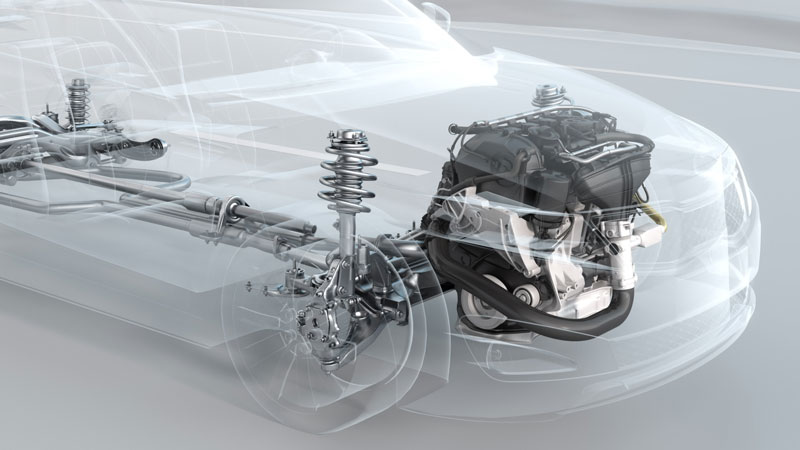
Common Reasons Why Your Engine Might Be Shaking
You might be wondering why your engine's shaking. It could be due to a variety of reasons, including an engine misfire, bad motor mounts, worn transmission mounts, or even an internal engine failure. We'll discuss each of these possibilities to help you understand what's going on.
Engine Misfire
One common reason your car engine might be shaking is due to an engine misfire. This happens when the engine's combustion process is interrupted or doesn't occur at all. Often, the culprit behind an engine misfire is a problem with your spark plugs. These little components are vital for igniting the air-fuel mixture in your engine.
When they're worn or damaged, they can't do their job properly, leading to an engine misfire. You may notice your car hesitates, jerks or feels sluggish, especially during acceleration.
If you're experiencing these symptoms, it's best to get your spark plugs checked and replaced if necessary. Ignoring an engine misfire can lead to more serious engine damage down the line.
Bad Motor Mounts
Another common cause of your engine shaking could be bad motor mounts. Motor mounts play a crucial role in your car's operations, holding your engine in place and reducing engine vibrations. If they're damaged or worn out, you'll likely start to feel these vibrations strongly in your car.
This shaking can be more noticeable when you start your engine or accelerate. Bad motor mounts can also cause a clunking noise, especially when you're shifting gears. It's important to address this issue promptly.
Ignoring it can lead to more serious problems, such as damage to the engine or other components. So, if your car is shaking, don't wait. Get your motor mounts checked and replaced if necessary.
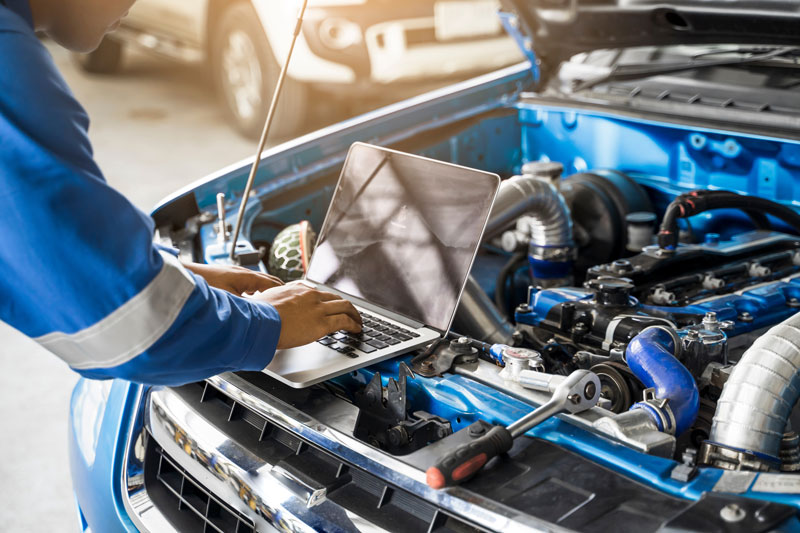
Worn Transmission Mounts
Just as worn-out motor mounts can cause your engine to shake, damaged transmission mounts also pose a similar problem. These mounts act like a cushion between your engine and your car's body. They absorb vibrations and shocks while driving. Worn or damaged transmission mounts don't provide the necessary support, leading to engine shaking.
Here is what to keep in mind:
- Vibrations: You'll feel vibrations, especially when accelerating.
- Noise: Listen for a clunking noise when you shift gears.
- Movement: You might notice an unusually high amount of movement in the engine bay.
- Gear shifting: Difficulty in shifting gears can also be a sign.
Although worn spark plugs can cause engine shaking too, don't overlook the possibility of worn transmission mounts. Get your car checked promptly if you notice these symptoms.
Internal Engine Failure
While worn transmission mounts can indeed lead to engine shaking, there's also the chance that internal engine failure could be the culprit. When the ignition system fails, it can cause engine misfires, leading your car to shake.
This is because the engine is unable to work smoothly and efficiently. The ignition system plays a crucial role in powering your car, so any failure can disrupt the overall function.
Engine misfires are another common reason for the shaking. If fuel isn't properly ignited in the cylinders, a misfire occurs, causing your car to shake or jerk. Regular maintenance can prevent these issues. So, if you're noticing your car shaking, it's important to get it checked out as soon as possible to prevent further damage.
Is It Safe to Drive When Your Car Is Shaking?
Despite the discomfort and inconvenience, you might wonder if it's safe to drive when your car is shaking. After all, it's not exactly a pleasant feeling to have your vehicle vibrate under you.
However, the answer to that question largely depends on the severity of the shaking and the cause behind it.
A car or engine shaking can be a sign of several issues, ranging from minor to severe:
- If the shaking is minor and occurs only occasionally, you might be able to drive for short distances. But remember, it's not ideal.
- If the shaking is severe or constant, it's definitely unsafe to continue driving.
- Ignoring the shaking can lead to more severe issues down the road, like engine damage or even a breakdown.
In any case, it's always best to get your car checked by a professional to diagnose the exact problem.
What Should You Do if Your Engine Is Shaking?
So, you've determined that it's unsafe to keep driving with your car shaking - now it's crucial to understand what steps to take if your engine is shaking. First, don't ignore the problem - it won't disappear on its own. Your car is trying to tell you something, and the sooner you listen, the better.
One common cause of engine shaking is engine misfires. This can happen if your spark plugs are worn out or if there's an issue with your ignition system. Check your spark plugs for any signs of wear and tear.
If they're past their prime, it's time to replace them. If your spark plugs seem fine, the problem might lie with your ignition system. This system is responsible for igniting the fuel in your engine, and if there's a fault, your engine might shake.
Don't be afraid to seek professional help. Mechanics have the tools and expertise to diagnose and fix engine issues. They can check your ignition system, address any engine misfires, and get your car back to running smoothly. Remember, it's always better to be safe than sorry.
Conclusion
So, say so long to stress and uncertainty. Understand why your vehicle vibrates, be it bad spark plugs, faulty fuel injectors, or engine misfires. Remember, running risks can result in real road dangers.
Don't delay, diagnose the dilemma today. Trust in professional help when needed, and ensure a safe, smooth, and secure future for you and your car. Keep cruising confidently, knowing you're caring for your car correctly.
FAQs (Frequently Asked Questions)
How Often Should I Get My Car Serviced to Prevent Engine Shaking?
- You should get your car serviced every 3,000 to 5,000 miles. Regular maintenance, including oil changes, tire rotations, and brake checks, can prevent engine shaking. Don't ignore minor issues, they can lead to major problems.
How Long Does It Typically Take to Repair Common Issues That Cause Car Engine Shaking?
- Repair times vary. Simple fixes like spark plug replacement may take an hour. However, more complex issues like engine misfires may require several hours to a few days. It's best to consult your mechanic.
If I Continue to Drive With a Shaking Engine, Will It Affect Other Components of My Car?
- Yes, if you keep driving with a shaking engine, it'll likely damage other car components. It can wear down your car's suspension, cause tire issues, and potentially lead to more serious mechanical problems.
